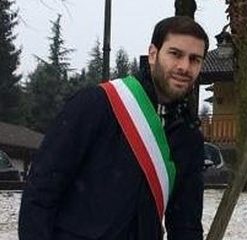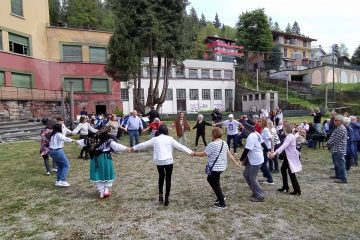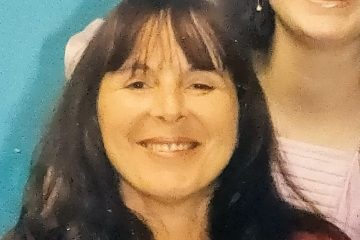The Venice Biennale awarded the Silver Lion at the film that is a warning to remember the Holocaust.
We never tire of remembering this tragedy.
The film tells story of everyday life during the most tragic events and the horror of World War II.
A story in black and white of three crossed destinies: Olga, Jules and Helmut.
Olga is an aristocratic Russian emigrated to Franca and member of the French Resistance, arrested by the SS for having hidden and protected two Jewish children during a Nazi raid.
Jules is a collaborator; Commissioner at the time of the Vichy Republic investigating his case and promises a reduction of sentence in exchange for sexual favors. Although Olga accept the exchange, the events will lead it anyway in a concentration camp.
In the field will meet Helmut, SS officer, once in love with her, but still enamored by the young Olga.
The significance of this film about the Holocaust is well expressed by the quotation of the German philosopher Karl Jaspers:
“What happened is a warning. It must be constantly reminded. How was it possible that it happened once, it remains possible that happen again, at any time. Only the knowledge of what it was, can avoid it to happen again.”
In the background of the tragic concentration camps, the motto “every life has a meaning.”
Filmed in an austere black and white in 4: 3, the Andrei Konchalovsky film poses a distance the Holocaust, reflect on the history that is rooted in the events and he wants to communicate with the present.
The photographs are only accusations about the origins of evil and the possibility to do good in certain historical and personal circumstances.
“Paradise” of the title is a great place, the individual aspiration observed from different perspectives and conflicting, but mostly it is the site of the Nazi leadership of the superior race, which is derived from demographic and racist concept of “Superman – Übermensch”.
Konchalovsky wrote the screenplay together with Elena Kiseleva, after the experience for The Postman’s White Night, by structuring the film through a series of interviews live, but without knowing who the caller who asks the questions. The voiceover gives the story a universal character.
This is a programmatic away from feelings and motivations of the characters, where even “crazy love” between Olga and Helmut is described by the supremacy of the word. As the sequence “denied” on foot fetishism told by Helmut.
The film appears clear theatrical setting. Predominates the word rather than the action. The bodies do not touch, and the testimonies of the protagonists seem interrogation of a court.
The set has the performance and composure hieratic of classical tragedy.
In accordance with the manufacturer, which is the Russian TV, there shines a certain nationalist rhetoric, according to the needs of the international current Russian policy.
“History is full of great tragedies – said Andrei Konchalovsky – most of which appear to us as ancient misdeeds that could not happen today.”
For the director and screenwriter Russian “one of the worst moments in the history of our generation has been the rise of the Nazi party and the extermination of millions of Jews and other people who did not fit the Nazi in the ideal of a “perfect paradise “German : such atrocities showed up to where it can go the wickedness of human beings“.
Although these events have occurred in the past, for Konchalovsky “today is coming back to the fore the same way of thinking radical and imbued with hatred that threatens the lives and security of many individuals in the world.”
“Paradise” reflects well on a twentieth century “full of great illusions buried under the ruins, about the dangers of hate rhetoric and the need of humans to use the power of love to triumph over evil.”





